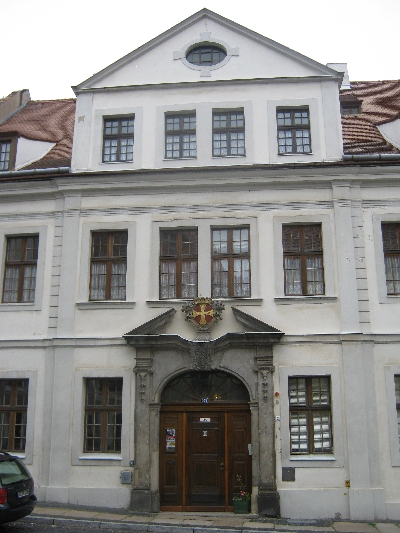
As explained in the opening two paragraphs of my previous post, back on Tuesday 18th August 2015, Sybille and I drove from Prague to Görlitz, in order to spend the following week walking the first part of Der Ökumenische Pilgerweg. We stayed overnight in the Peregrinus Herberge, where we were also able to leave the ‘Carly’ securely parked, before setting out along the Pilgerweg the next morning.
With Görlitz being located in the valley of the Neiße river, it was inevitable that initially walking westwards to leave the town, involved walking uphill! However, we were soon out into open countryside and having covered 5km……
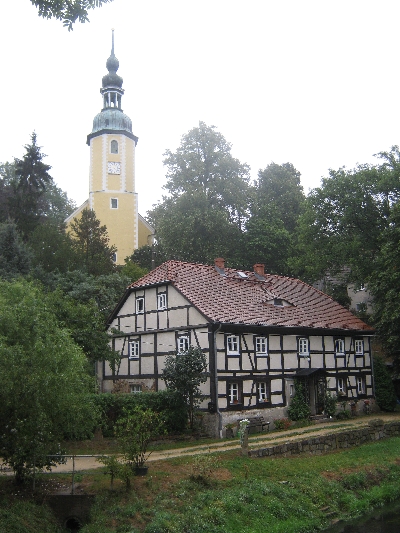
……reached the attractive village of Ebersbach.
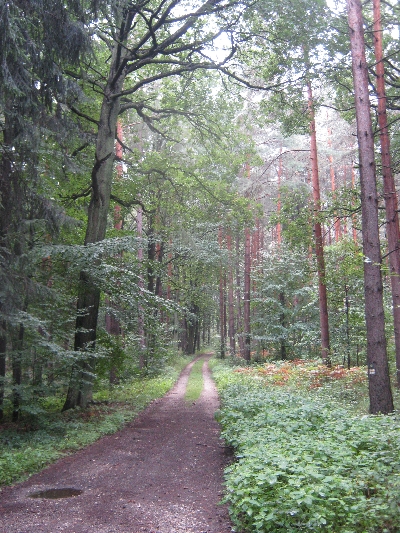
From Ebersbach, there was then a gentle further climb along a minor road to the small village of Liebstein. The way then heads into a large and hilly forested area, following a series of gravelled tracks. 15km after leaving Görlitz, we finally arrived at Hochstein, at 406m above sea level, the highest point on the Pilgerweg east of Leipzig. Fortunately, it is also the location of the Hochsteinbaude where we were able to enjoy a drink and a late lunch. We were glad that we hadn’t arrived the previous day as Dienstag ist Ruhetag!
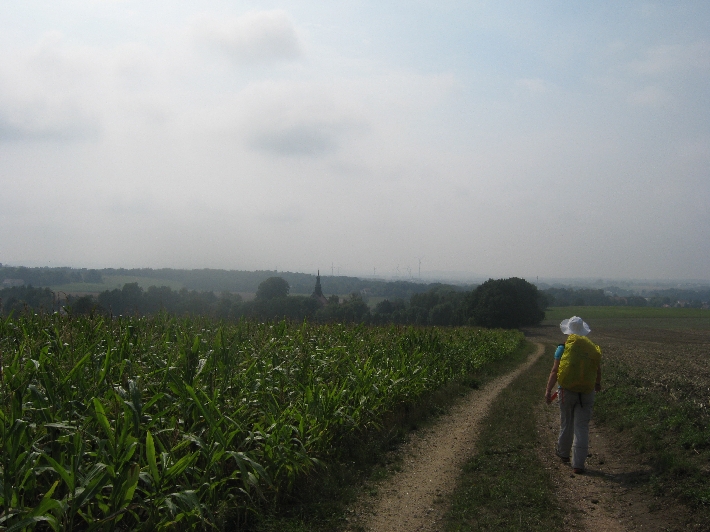
Suitably refreshed, we then continued to walk a further 5.5km, eventually leaving the forest and gently descending to the village of Arnsdorf.
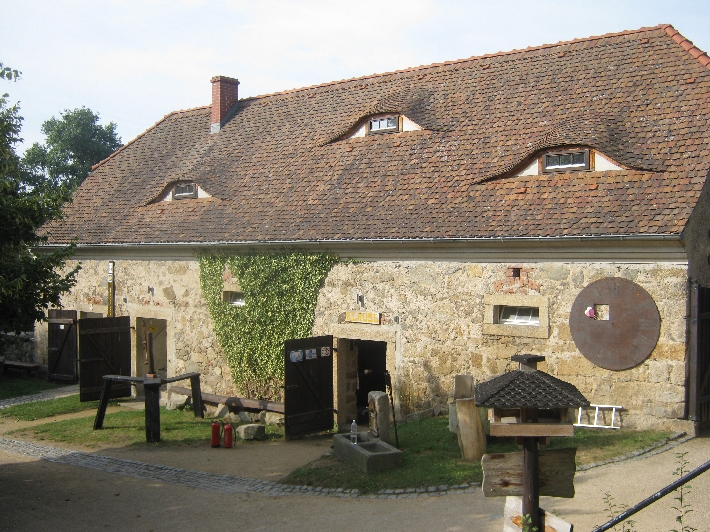
In Arnsdorf, we stayed in this delightful Pilgerherberge which has been created in the outbuildings of the Protestant Pastor’s home.
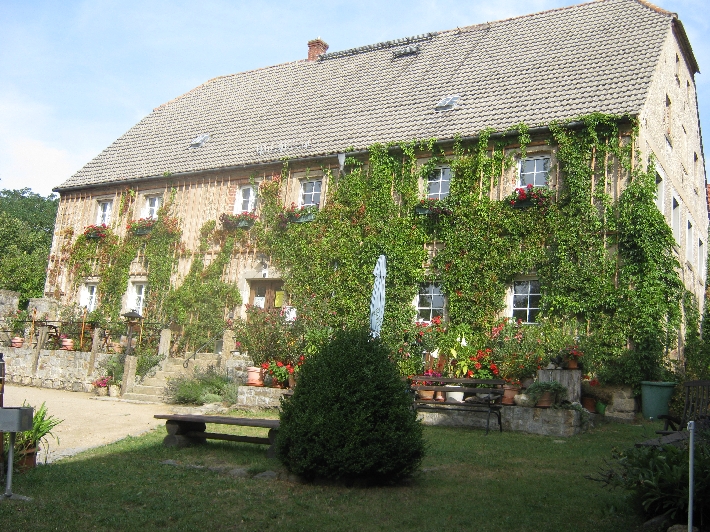
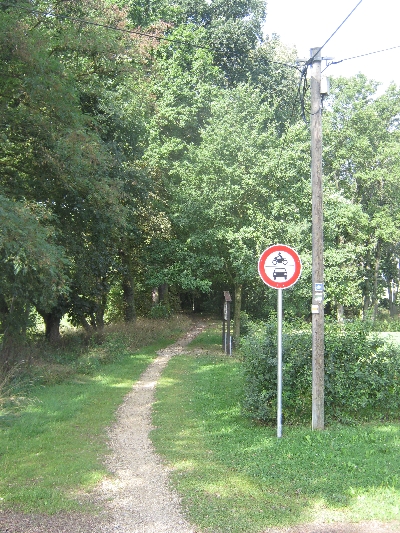
The next day, our route took us along paths like this…..
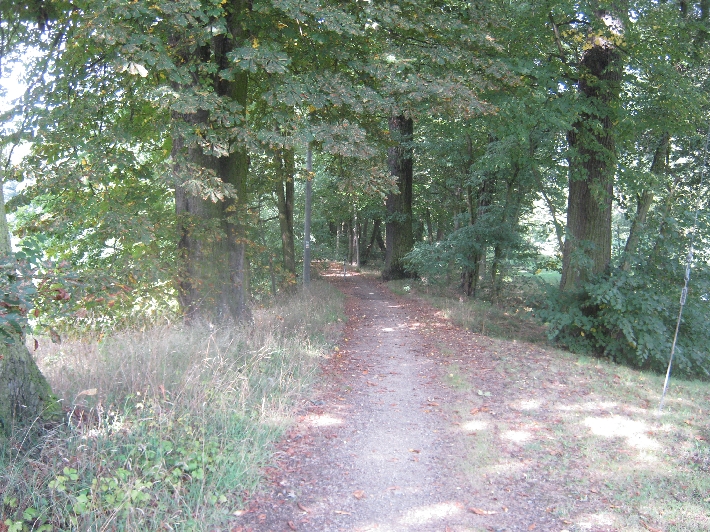
…and this,
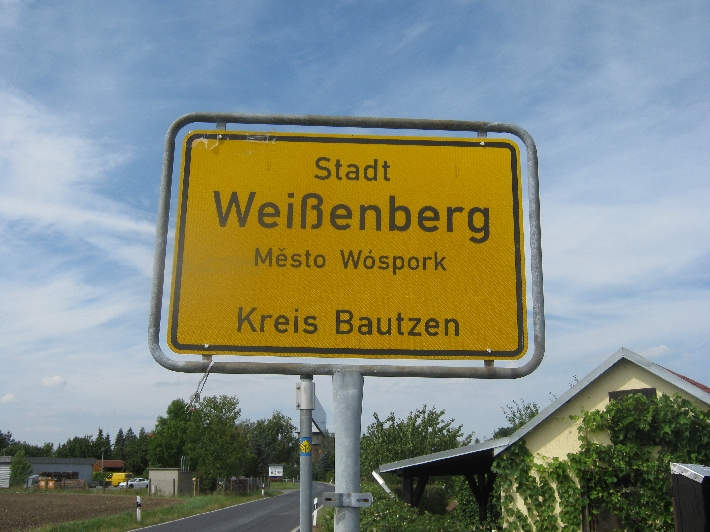
sometimes following minor roads, until we reached the small town of Weissenberg. Weissenberg marks the beginning of this part of south-eastern Germany where Sorbian is spoken, which is a legally recognised minority language, hence the town’s alternative name Wóspork. Sorbian is a West Slavic language, closely related to Czech and Polish – more in my next blog post.
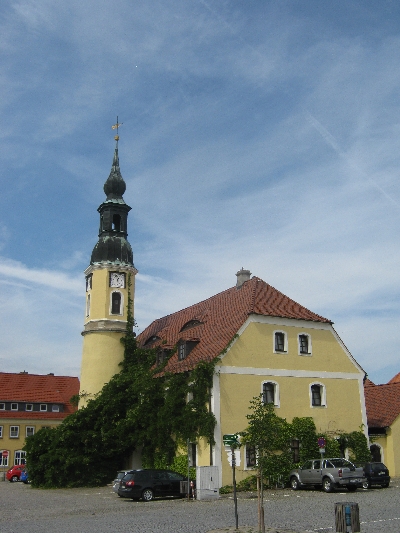
After lunch at an outdoor table of a restaurant situated on the main square, opposite the Weissenberg Rathaus, we walked on, heading for the village of Gröditz.
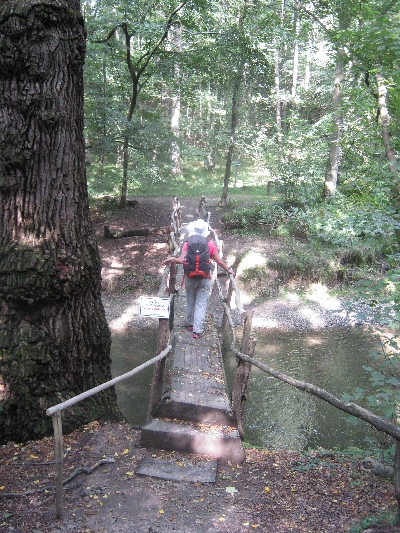
Our route took us along the Gröditzer Skala, an attractive deep valley. But it also involved crossing a river on this somewhat rickety footbridge!
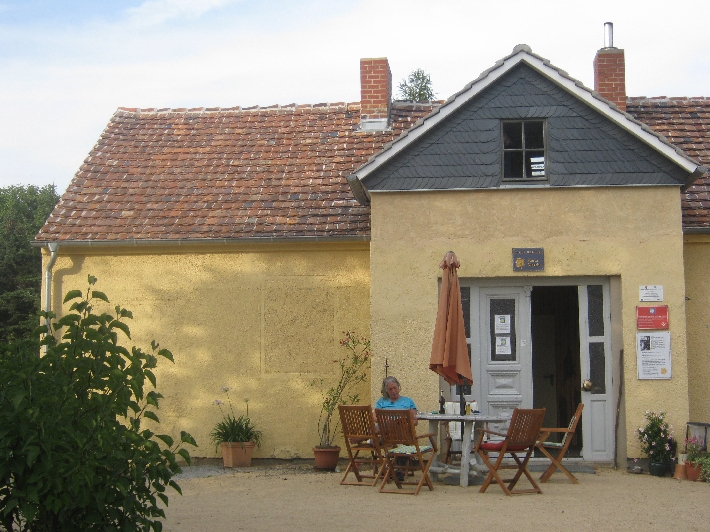
We eventually climbed out of the valley to arrive directly before the door of the Gröditz Pilgerherberge. For those interested in distances, Arnsdorf – Gröditz is about 15.5km.

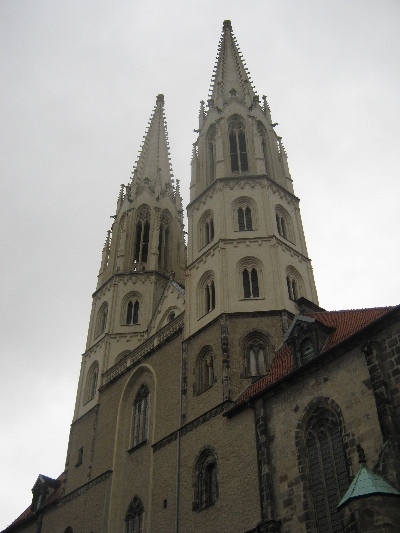


Dear Ricky,
I came across your blog (hilarious post about the 10 points how to become Czech) by accident and just wanted to share some travel tips if going as a pilgrim to North Bohemia and Lusatia. In Rumburk (120km from Praha), there is the northernmost loreto chapel in the world (most significant Czech baroque loreto along with Prague loreto).
http://www.loretarumburk.cz/en/
It is also a part of a pilgrim voyage Via sacra between Germany, Poland and CZ.
More at http://www.via-sacra.info.
If you like the nature, visit the national park Bohemian Switzerland with the largest natural sandstone bridge or Europe.
Best regards,
David
Thank you, David! I’m glad you enjoyed, ‘How to be Czech in 10 easy steps’ http://rickyyates.com/how-to-be-czech-in-10-easy-steps/ . It remains the most frequent landing page on my blog.
Thank you too, for the two links. With regard to your last paragraph, I’ve already visited Bohemian Switzerland, including the famous sandstone arch http://rickyyates.com/a-walk-in-ceske-svycarsko-bohemian-switzerland/
What a wonderful area to be walking through, Ricky. All those appealing small towns and villages, tempting paths and lovely countryside. 🙂
A delightful area to walk through, Perpetua, and even in August, not crowded at all.
The photos on this particular post are STUNNING – what a beautiful walk that must have been! What lovely photos of your wife, especially. FYI – I had to re-read the title of your post because the town names look so similar; I thought it odd you’d be walking in circles 🙂
Thank you, Em! Sorry to confuse you but I can assure that Görlitz and Gröditz are two different places 🙂